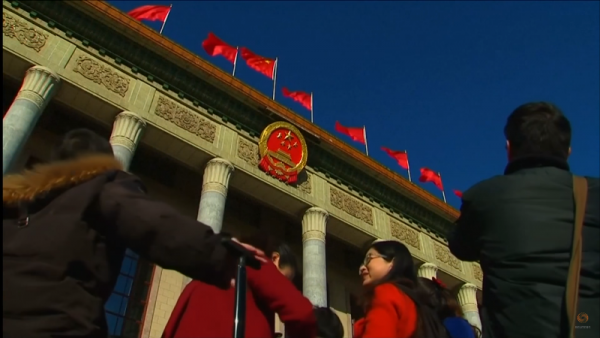By KM Diaz, | June 10, 2017

On June 1, China implemented a controversial cybersecurity law to protect the country's network, as well as private user details. (YouTube)
On June 1, China implemented a controversial cybersecurity law to protect the country's network, as well as private user details. China's controversial regulation also cracks down on online peddlers of celebrity gossip, in which internet companies were ordered to stop "catering to the public's vulgar taste".
Like Us on Facebook
According to the Beijing Cyberspace Administration, at least 60 social media accounts that promote news and paparazzi photos of rich and famous people in China have been covered in the crackdown. The major internet companies, such as Tencent and Baidu, were ordered to obey the terms of the new law that requires information services and online news to correctly guide public opinion and serve the direction of socialism.
The statement published on Wednesday said that these companies should take effective measures to restrain the flaunting of celebrity's wealth, embellishment of sex scandals of celebrities, and to stop the public's vulgar taste.
China has been known to have the world's tightest controls on web content which is protected by the so-called "The Great Firewall". Free speech restrictions also increased in 2012 after President Xi Jinping assumed power.
On Friday, there are attempts to access several targeted accounts on WeChat, a popular messaging app in China. An error message was sent claiming that they had been "sealed" on suspicion of violating regulations.
Some of the rumour-mill accounts that were shut down are the "Detective Zhao Wu'er," and "China's Number One Paparazzo Zhuo Wei". These two are reportedly known to tail celebrities to expose secret children and love affairs. Their demise set several reactions from some of the social media users.
A user wailed on China's Twitter-like Weibo saying that the hand of the government stretched too far, and arts should be free, while others support the crackdown, pointing that there are "no boundaries" on gossip accounts. Another post also added that there is nothing regrettable shutting trashy blogs.
-
Use of Coronavirus Pandemic Drones Raises Privacy Concerns: Drones Spread Fear, Local Officials Say

-
Coronavirus Hampers The Delivery Of Lockheed Martin F-35 Stealth Fighters For 2020

-
Instagram Speeds Up Plans to Add Account Memorialization Feature Due to COVID-19 Deaths

-
NASA: Perseverance Plans to Bring 'Mars Rock' to Earth in 2031

-
600 Dead And 3,000 In The Hospital as Iranians Believed Drinking High-Concentrations of Alcohol Can Cure The Coronavirus

-
600 Dead And 3,000 In The Hospital as Iranians Believed Drinking High-Concentrations of Alcohol Can Cure The Coronavirus

-
COVID-19: Doctors, Nurses Use Virtual Reality to Learn New Skills in Treating Coronavirus Patients











